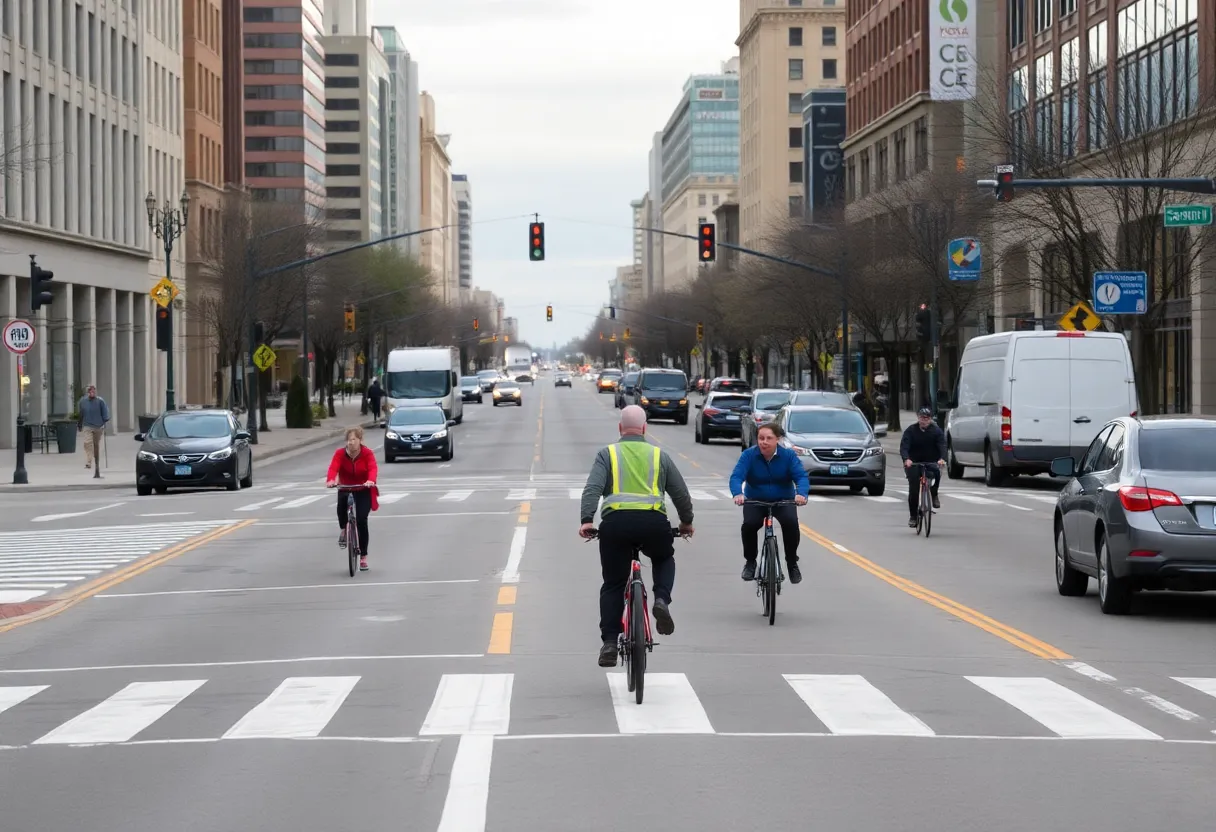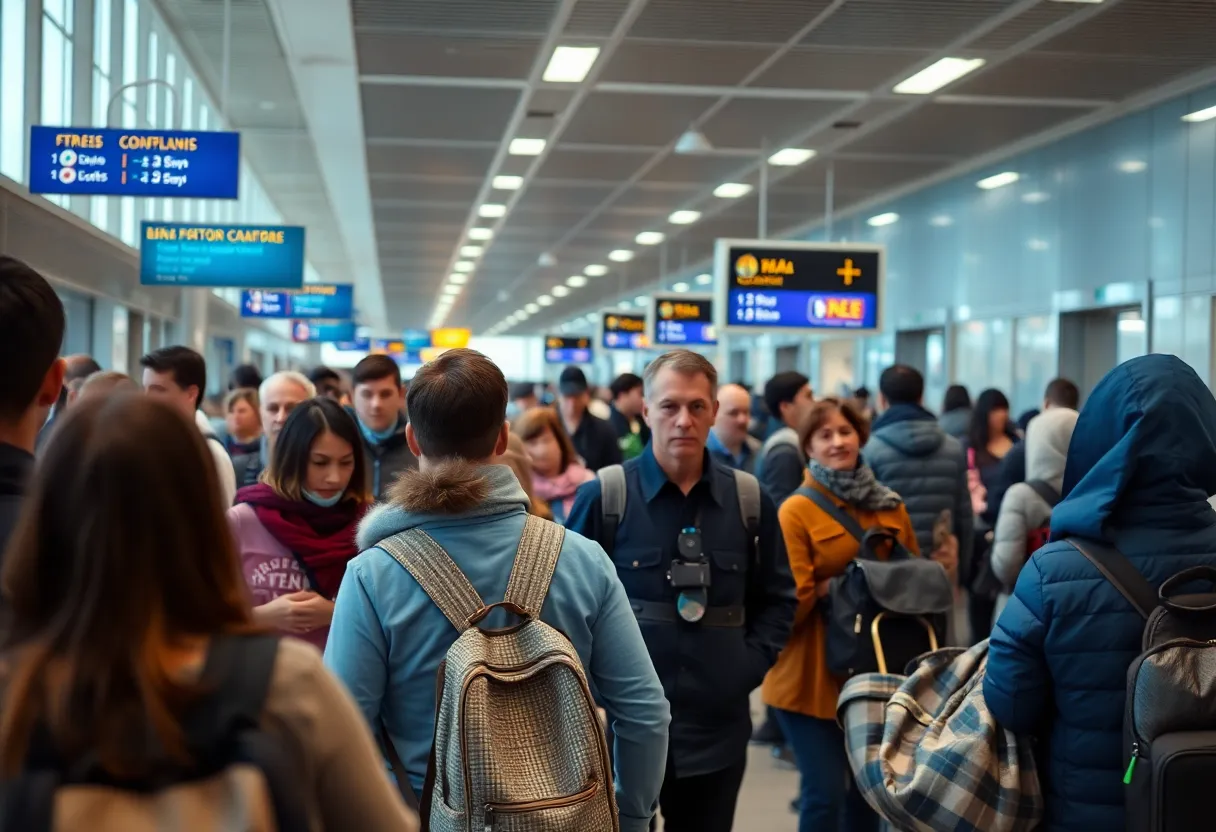News Summary
Kansas City, Missouri, is addressing road safety issues through a ‘road diet’ initiative aimed at reducing speeding on busy streets. The plan involves narrowing lanes and enhancing pedestrian crossings to improve safety, particularly after alarming incidents like accidents in local businesses. Despite facing federal pushback, city officials remain committed to these changes, citing success stories from other metropolitan areas. By engaging the community and focusing on data-driven strategies, Kansas City aims to create safer environments for all road users while tackling congestion concerns.
Kansas City Takes Safety to Heart with Innovative Road Dietary Changes
Kansas City, Missouri, is making waves with a bold approach to improve road safety. Recent incidents, including a dramatic car crash that wrecked a salon window on 31st Street, have raised serious alarm bells about the dangers of speeding vehicles on this busy stretch. Local business owners are often seen posting pictures of the aftermath of these accidents, which serve as stark reminders of the urgency to take action.
Speeding: A Community Concern
Many in the community, such as property owner Ryan Ferrell, have pointed fingers at the wide roads contributing to the speeding epidemic. With so many drivers treating the roads like a racetrack, residents’ safety is continuously at risk. This situation led the city to implement a unique strategy known as a “road diet”.
What Is a Road Diet?
Initiated in 2022, the “road diet” on 31st Street is all about reducing the number of lanes, allowing traffic to flow more safely. This design includes the addition of enhanced pedestrian crossings and protected on-street parking, all aimed at calming the relentless speed of cars. The goal is to create a safer environment for everyone, including pedestrians and cyclists.
Federal Pushback
The move toward a road diet isn’t without its challenges. Historically, federal guidelines backed such strategies, but recent recommendations from the previous administration have branded lane reduction projects as “less favorable.” The U.S. Department of Transportation has even voiced concerns that road diets could potentially lead to congestion and safety hazards.
Kansas City’s Commitment
Despite this pushback, Kansas City remains resolute. As streets are repaved, the city embraces road diets as a standard safety measure, especially on roads with fewer than 25,000 vehicles daily. Urban planners are optimistic about the success of these initiatives. In fact, one urban planner noted it as a “smashing success” for reducing speeds and accidents, assuring that the city’s effort is not in vain.
Success Stories from Other Cities
Kansas City isn’t venturing into unknown territory alone. Other cities have seen promising outcomes from similar programs. For instance, Philadelphia reports a remarkable 19% decrease in injury crashes, while Portland, Oregon, boasts over a 70% drop in vehicles exceeding the speed limit by 10 mph. Even Fort Lauderdale enjoyed a dip in average speed by 5 mph shortly after implementing a road diet.
Opposition and Concerns
While many hail road diets as beneficial, critics like those from the National Motorists Association argue that these changes simply push the problem onto adjacent streets, creating congestion in different areas. The conflict continues, with skepticism growing in certain states, leading to the halting of planned projects. Examples include areas in San Antonio and Florida, where the response to road diets has not always been positive.
Data vs. Public Sentiment
Interestingly, a study conducted by the University of Iowa found that emergency response times were not significantly affected by the implementation of road diets. However, public sentiment is powerful, and cities like Culver City, California, felt the heat of backlash and abandoned their road diet plans when traffic patterns changed post-pandemic.
Engaging the Community
Kansas City acknowledges the importance of data-driven planning alongside community engagement. It’s clear that collaboration with residents is crucial in addressing valid concerns regarding congestion and the access of emergency services. The mission is to not only make the roads safer but to create a space where all road users can coexist comfortably.
Looking Ahead
Kansas City’s journey with road diets reflects a broader ambition to enhance urban safety and reduce dependence on cars. It’s an ongoing challenge, but the city is determined to pave the way for a brighter and safer future for everyone.
Deeper Dive: News & Info About This Topic
HERE Resources
Tragic Accident Claims Lives of Two Teens in Overland Park
Verdict Delivered in Shocking Maryland Murder Case
Close Call in Oakland Mayoral Race as Voters Seek Change
Kansas City Man Pleads Guilty in Major Firearm Trafficking Case
Kansas City Faces Pothole Season Head-On
Severe Weather Alert for Kansas City This Easter Weekend
China Accuses U.S. NSA of Cyber Attacks During Asian Winter Games
Victor Martinez-Hernandez Convicted of Murdering Rachel Morin
Thunderstorms Rolling into Kansas City Midweek
Kansas City Police Assist Young Dylan in Returning Home
Additional Resources
- AP News
- Wikipedia
- MSN News
- Google Search: Road Diets
- Daily Item
- Encyclopedia Britannica: Transportation and Safety
- Tahlequah Daily Press
- Google News: Road Diets







